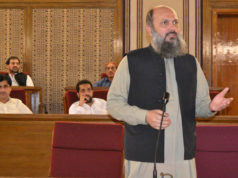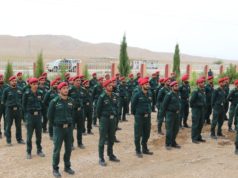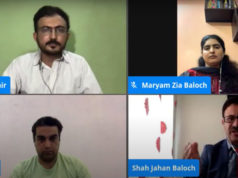Anisa Shabir
“Alyani seeks chieftains’ help in resolving tribal disputes,” a headline appears in the national section of Dawn newspaper on August 20, 2019. This comes right after the killing of Mir Amanullah Zarakzai, a member of the BNP Mengal. Zarakzai was shot in Khuzdar on August 17, 2019.
The amount of coverage Balochistan receives in the mainstream media vis-à-vis other provinces is negligible, least to say disappointing- if a story does make it to the mainstream media, it is marked with conflict, symbolizing how fragile the situation in the province is.
A hotchpotch of political parties, insurgent groups, and intelligence agencies, one never knows when things might boil over. But here’s the catch: media, in this case, appears as a paradox. It might ignore everything that happens in the region, or it might invariably report the event, so much so one might come across follow-up stories.
According to a study titled “Filtering revolution: Reporting Bias in International Newspaper Coverage of the Libyan Civil War”, media in democratic states tend to cover events that are “novel and large-scale”. It also emphasizes the fact that reporting bias comes from “newsworthiness and politics”.
Newsworthiness considers the “commercial preferences of reporters and editors”, whereby the aim is to garner more readership. Politics as a source of bias in reporting takes a nuanced approach. According to the paper, reporting bias due to politics, “originates from the political preferences of incumbent governments, who seek to maintain power.” It further adds that “state in which a media firm is based may have its own preferences about the appropriate breadth, depth, and emphasis of news coverage, particularly when the subject is politically sensitive.”
The assassination of BNP Mengal’s leader set off a chain of events which hold significance. The widow of the deceased nominated 10 people in the FIR. To top it off, the FIR had the name of Sanaullah Zehri, the ex-chief minister of the province, and Naimatullah Zehri, his brother and MPA. Later, a report titled “BNP-M blames the state for tribal feuds” makes it to Dawn’s national section.
The recurring theme of ‘tribal disputes’ presents a tainted image of the province. Reporting bias originating from “politics” might be the case of the follow-up stories appearing in the newspaper. Moreover, the matter is politically sensitive when it comes to Balochistan. The dethroned ex-chief minister topping the suspect list surely presents a novelty for the media to cover.
It’s not always the grim news that surfaces from the province. “Balochistan CM kicks off tree plantation drive”, a report with a picture of Jam Kamal holding a sapling, posing for the camera appears in Dawn on August 19. The zeal shown by the chief minister to plant trees is part of a nation-wide tree plantation campaign started by prime minister Imran Khan last year.
Water shortage and the construction of dams to solve the crisis also made news in the latter part of August. “…the completion of dams with the federal government’s fund…” which would “fulfill water needs of the province”, were the highlights of the report: CM Balochistan constitutes a panel to oversee water projects.
July, this year was the hottest month on record, setting off worldwide alarms about the urgency of dealing with global warming. The reverberations were felt in this part of the world too, which resulted in the frantic effort to plant more trees. The antidote to all global-warming ailments: tree plantation, and media not a messiah of course, but a messenger reaching out to people that the anointed one was here to set things right.
But the contradictory nature of the campaign and other initiatives taken by the government, reported in the newspapers, debunks the claims that things are being taken care of. For how can a provincial government plant “one million saplings”, which may need water for its growth, when the province is facing water shortage for which dams are being built, and when the chief minister himself says, “due to lack of rains a majority of areas in Balochistan had been hit with drought.”
The campaign got reported because of its relevance in the time when people are thinking of ways to mitigate the effects of global warming. What remains to be seen is how the promises made are fulfilled.
Media, on the other hand, continues to surprise us. It reports, but the lack of in-depth analysis which may help explain the problem, and follow-up stories which must hold power to account tarnishes its image. And hence the paradoxical nature prevails.
Share your comments!








